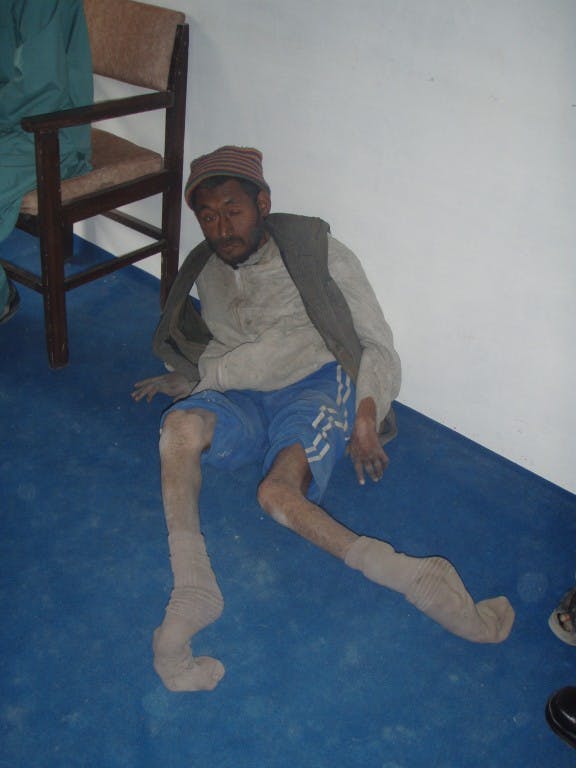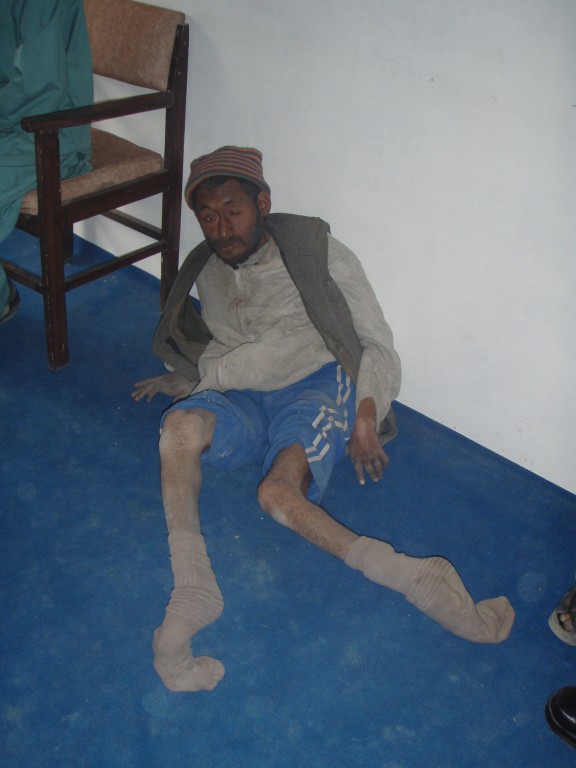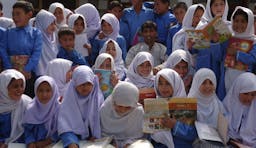Who will care for improving the lives of these forgotten population of the globe
Jan 21, 2015
First story


People with Disabled (PWDs) in the developing world often face more acute barriers than those in developed nations. Up to 80% of disabled persons live in isolated rural areas in the developing world. In some countries 10% of the populations are disabled. Thus, it can be estimated that, when disabled people's relatives are included, 50% of the population is affected by disability. In addition, disabled people are the poorest of the poor. They often do not have access to adequate medical services. As a result disabilities are often not detected in time to minimize disability affects. By the time they receive medical attention, if at all, impairment may have become irreversible.
In Pakistan, it was estimated that a total of 4 million (2.49%) of the peoples with disabilities have some forms of disability as per government (Census 1998), while the organizations working in disability sector estimate it up to 10 %. Now days another a highly increasing disability factor is war, violence and terrorism. Terrorism has become like a cancer in Pakistan. More than 100 people killing is common in the country now a day. Furthermore the present inflation and price increases in commodities and the already unequal economic structure of the country leading the people to more vulnerable situations i.e. malnutrition, housing, sanitation and other problems -- all increasing the risk of acquiring or compounding the problems of disability.
The UN Conventions on the Rights of Persons with Disabilities recognizes the full potential of PWDs and urge the Governments and Civil Society to protect their rights and promote inclusions. The Pakistan National policy for persons with disabilities (2002) also emphasizes on realization of the full potential of persons with disabilities. The National Plan of Action 2006 for effective implementation of the national policy is also in progress in the country. But the people with disabilities living in a far flung remote rural area namely - District Skardu Baltistan Federally Administered Northern Areas Pakistan; are absolutely excluded from any type of rehabilitation, education or economic development opportunity so far. More than 23000 people out of 210,000 populations in Skardu are disabled as a consequence of mental, physical or sensory impairment. These persons are entitled as God made disabled persons and do not consider to the same rights as all other human beings and to equal opportunities by majority of the society people in the real sense. Thousands of children and adults are facing a life that is segregated and debased in this highly inaccessible and mountainous area of the world. In this region one person is found with some form of disability out of each five household major affects of physical or mental or sensory impairment. At least 11% of the population is adversely affected by disabilities in Skardu Baltistan with no services to enable them to overcome their limitations. This figure is much higher than the international and national ratio but these can be explored due to malnutrition, lack of care for pregnant mother, poor understanding and knowledge about various diseases giving rise to disability by birth. Apart from this, mining and shelling across the border are also on the origin of some disabilities, especially important among internally displaced populations. Added to this context, the lack of access to information and rehabilitation facilities dramatically increases the risk of becoming socially excluded due to disability. Communities take it for granted as part of their mythic values that interprets the misery of disability ordained from God, as a punishment to be accepted with no possibilities of having a different life. Disabled women are more handicapped because disabled and women. They are subjected to social, cultural and economic disadvantages and they are not considered for health care, education, vocational training and employment. Since they are physically or mentally disabled their chances of overcoming their disablement are diminished and making it all the more and more difficult life conditions in the jeopardy situations.
Grace Association started micro community level projects on disability since March 2007. During the years 2007-08 Grace collected data of Persons with Disabilities to develop an effective rehabilitation, education and empowerment plan of action. Following are the main findings illustrating the situation of PWD in that remote region:
• 200 (11%) peoples with disabilities identified out of 1800 populations during the random survey in a suburb of Skardu.
• Disabled women are living at most vulnerable conditions and more handicapped because they are disabled and women. They are subjected to social, cultural and economic disadvantages and they are not considered for health care, education, vocational training and employment.
• A disability issue is found in 1 out of every 5th household included in survey.
• In Skardu, children and people are found with different kind of diseases, mostly poliomyelitis but also: hemiplegia, epilepsy, cerebral palsy, club foot flat foot, cynocephalus, moderate quadriplegia (stroke), Qulin Plegia, burn cases, deafness, visual impairment, visually challenged, hearing impairment and severe chronic muscular dystrophy.
• Majority of them are found in the families belonging to poorest of the poor families
• Polio situation in the region is more critical than other cities of the country. 12 out of 33 children and persons with disabilities confirmed as serious polio case by a team of World Health Organization specialist (May 2008). Grace Association Pakistan requested WHO for this assessment to identify severe polio victims in the area.
• Most of the polio affected and paralyzed can move with a wheelchair and some of them can be rehabilitated with assistive devices they have no access to information or services and are forced to live with vulnerable conditions.
• There is no special education school.
• Children with disabilities avoid by themselves or parents do not send them mainstream schools due to a sense of shame and a fear of re-exclusion.
• No idea of rehabilitation and physiotherapy is existed in parents.
• There is no physiotherapist, orthopedic specialist or any professional throughout in the two districts of Baltistan.
• No any civil society or Government organization is working for any kind of services.
• Local peoples are so cooperative but they need sensitization, awareness raising and capacity building to promote community based rehabilitation services.
Therefore a dire need is realizing all aware people and sharing their feelings with Grace Association that a multi-stakeholder collaboration to support community needs and activities, with the collaboration between all groups would contribute to an invaluable opportunity for meeting the goals of UN Conventions and the Pakistan National Policy in this remote and mountainous region of the Globe where PWDs have been invisible and forgotten populations till now.
For details please visit http://www.grace.org.pk/annual_reports.php. You will find small but interesting community development stories.
Thank you




